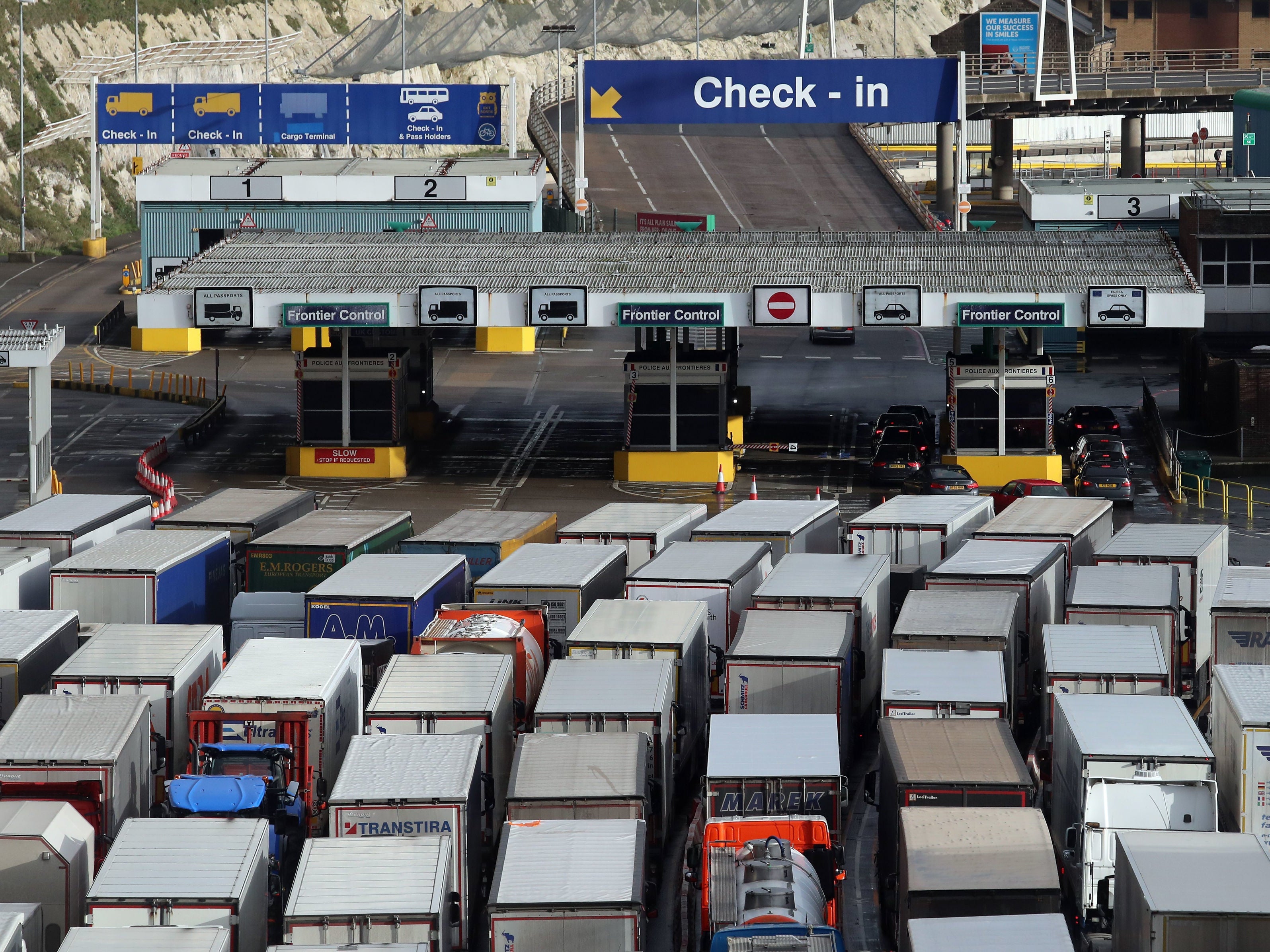UK risking new diseases and unsafe food by delaying checks to avoid Brexit border chaos, experts warn
MPs told that criminal gangs are circling UK and hoping to make major profits from laissez-faire approach

Your support helps us to tell the story
From reproductive rights to climate change to Big Tech, The Independent is on the ground when the story is developing. Whether it's investigating the financials of Elon Musk's pro-Trump PAC or producing our latest documentary, 'The A Word', which shines a light on the American women fighting for reproductive rights, we know how important it is to parse out the facts from the messaging.
At such a critical moment in US history, we need reporters on the ground. Your donation allows us to keep sending journalists to speak to both sides of the story.
The Independent is trusted by Americans across the entire political spectrum. And unlike many other quality news outlets, we choose not to lock Americans out of our reporting and analysis with paywalls. We believe quality journalism should be available to everyone, paid for by those who can afford it.
Your support makes all the difference.The government is risking new diseases and unsafe food coming to Britain by delaying the introduction of safety checks in a bid to avoid Brexit chaos, experts have warned.
MPs on the Commons environment committee were told that "unscrupulous" criminal gangs had their eyes on the UK's lax controls, drawn by making "considerable" amounts of easy money.
The government announced earlier this month that it would delay food safety checks by a further six months because a network of 30 border posts to process incoming goods would not be ready on time.
Introducing the checks before the completion of the new infrastructure – which has been repeatedly delayed – would cause even more problems at the border, following a 28.8 per cent fall in imports from the EU after Britain quit the single market.
But top experts warned that the failure to check imports of product like seafood and meat was potentially putting public health at risk and opening the UK up to new diseases now Britain no longer benefited from EU health surveillence systems.
"It's important to recognise that the system of checks and controls that we have our core health protection, public health, controls. They're not an inconvenience to be got around, they're there for a reason," said Gary McFarlane, Northern Ireland director at the Chartered Institute for Environmental Health.
"It is not the vast majority of scrupulous or of diligent operator operators and legitimate food businesses that we need to be concerned about here. It is those who will set out to thwart the controls and the checks that the system puts in place.
"I'm quite sure, and I know from speaking to colleagues, there are others who share this view: that the eyes of the unscrupulous operators and individuals out there will have been on this situation. And, in simple terms: if we leave the door open at too much or too long there are risks."
Mr McFarlane noted that the National Food Crime Unit had increased their capacity significantly ahead of Britain's exit from the European Union, adding "you can take from that what you will".
"I'm quite sure that there have been criminals across the world watching the situation we have for opportunities to exploit it. You need to bear in mind that the potential to make significant amounts of money here is considerable," he said.
"Now, obviously, not all of those risks necessarily pose public health risks, but potentially many of them could. And particularly when we start to get into areas such as allergic reaction, and mis-labelling of products, and so on. So the short answer is, in my view, professionally, would be: yes there are risks to public health from delaying the reduction of checks."
Speaking at the same committee, James Russell, the president of the British Veterinary Association said: "It may be fair to say that since we've parted ways in the European Union that there hasn't been a sudden change in the risk of the food coming across the channel: we aren't aware of any huge changes in standards of production or whatever. So at the moment in the short term, the alignment of our standards means that that risk is something which might not be huge.
"However, sitting outside of the EU, we don't have access to the range of the EU's disease surveillance and cooperation systems, which have been so important for us to understand things like for example African swine fever: where is that up to? Whereabouts is that on the continent? Where is it in the world, and how can we therefore protect our borders from that coming in?
"These these checks are that line of defence for us now, so I think there's a note of caution there about a disease which is not currently in the United Kingdom and how we keep it out, but perhaps balanced against the fact that if there was imports from the European Union. We are aware of huge differences, at the moment."
British exports to the EU have been subject to controls since 1 January, bu the government has left British borders open to goods and adopted a phased approach to give itself and businesses more time to adapt.
Physical sanitary and phytosanitary (SPS) checks on animal products, food, and plants considered high risk will not take place until 1 January next year.
Michael Gove, the minister for the Cabinet Office, told MPs on Thursday that the government was bringing in a “revised timetable” after appeals from businesses.
Join our commenting forum
Join thought-provoking conversations, follow other Independent readers and see their replies
Comments